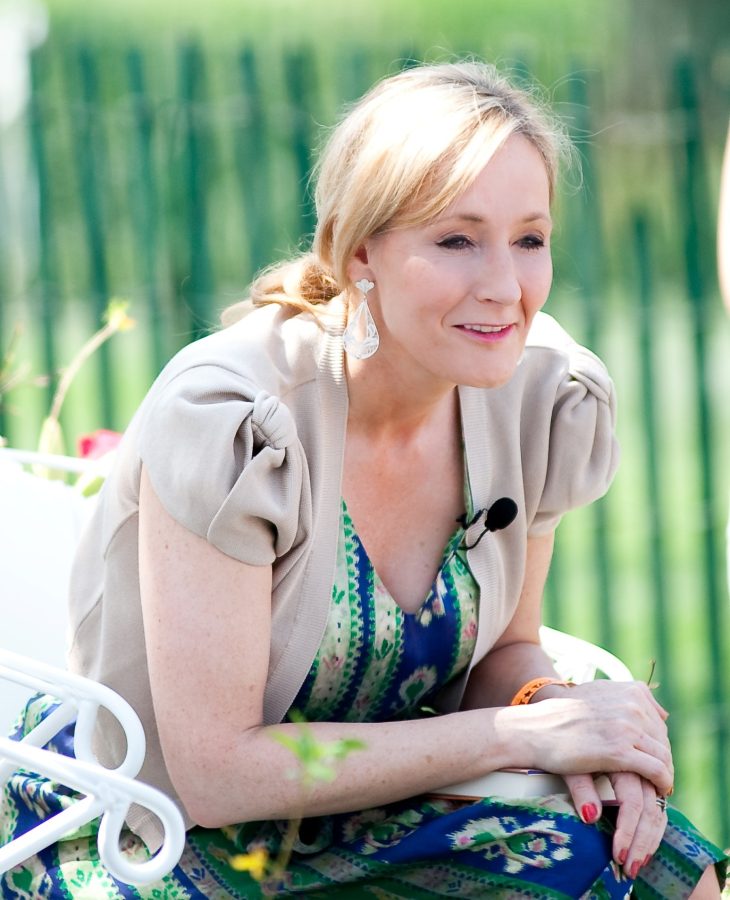In recent years, celebrities and artists have been constantly revealed to be problematic in one or multiple ways. From comedian Chris D’Elia to President Donald Trump, accusations of damaging behavior and sexual assault have taken over weeks worth of news cycles, beginning with the accusation of Harvey Weinstein.
It is almost universally agreed upon that the actions of those who have committed these acts must be aggressively addressed. However, as these celebrities often make works that are beloved by many people, it leaves the public wondering: can we, in some situations, separate the art from the artist? Can we love a book, movie or series without condoning reprehensible behavior?
The short answer to this question is not satisfying — it depends. It depends on a multitude of factors. Due to the complexity of this issue, the answer is not black and white.
It is very important to note that while holding people accountable for their actions is of the utmost importance, we must be mindful of the others we are harming when we do so. Below are three questions one must ask when considering whether separating the art from the artist is acceptable.
1. Is the art reflective of the person’s horrible actions?
Louis C.K. was a successful comedian who during the #MeToo movement was accused of sexual misconduct by multiple women. His actions were heinous and caused a lot of harm to these women and their loved ones. After he received these accusations, he decided that he would release a comedy special where he made a number of jokes about his many allegations from the previous years. In this case, it is impossible to separate the art from the artist’s actions because the art is reflective of the wrongdoings C.K. committed. Not only are the wrongdoings mentioned in the comedy special, but they are joked about. This art along with this artist is extremely harmful and therefore should not be separated.
Many artists use their art as a way to tell their real life stories. When the story they are trying to portray to the audience is full of injustices and atrocious acts that the creator does not show sympathy for, there is no reason to give this person a platform to tell this story. The person in question does not deserve this platform if when they are using it, they are harming others in the process.
2. Has this art already had an impact on society?
Many artists create pieces of art that have a lasting impact on society. Art can change the lives of millions, and this should be taken into account when deciding whether to continue to support the art in question.
J.K. Rowling, the author of the Harry Potter series, has written novels that have had a substantial impact on a large number of people’s lives. Harry Potter has proven to be more than a character to many people. Earlier this year, Rowling posted a blog post where she expressed concerns about the transgender movement that is occurring. Her comments made in this blog post are extremely damaging to those in the transgender community, and therefore she received major backlash from this.
While what Rowling said and did was very hateful, her work has influenced the lives of thousands. As Daniel Radcliffe wrote in response to Rowling’s transphobia, “If these books taught you that love is the strongest force in the universe … then that is between you and the book that you read, and it is sacred.” To “cancel” the entire Harry Potter world that she has created would cause more harm than good for many people. In this case, it would be ideal to separate her from her work due to the impact her work has had on society. It is possible to acknowledge her terrible behavior and expel her from Hogwarts, if you will.
3. Will “canceling” this art harm innocent people?
Movie and television sets consist of hundreds of people, therefore a movie or a television show is not defined by one actor. Boycotts of a movie or television show hurt more than just the actor they are trying to combat. These boycotts can harm the crew and writers who have worked tirelessly to make this movie or show a success.
Kevin Spacey faced multiple sexual assault allegations in the year 2017. In the year 2018, the movie in which he had a supporting role, “Billionaire Boys Club” was set to air. The movie production team decided to air the movie, given that Spacey’s role was minimal and the amount of work that the crew and the rest of the cast had already put into the film. Sadly, when the film aired it was considered to be a flop and only made $126 on opening night. This boycott not only had a devastating impact on Spacey but also the rest of the cast and crew who had spent time and money on this project. These innocent people were impacted by the actions of their co-star in a substantial way. In this case, separating art from the artist is essential in recognizing the work that others have put in.
After considering all of these questions, it is eventually up to one’s morals to decide whether the art and the artist should be separated. The issue is not one of ease, and in the end, it is up to the ethics and morals of the person deciding.
Follow Payton Toomey on Twitter

Payton Toomey is a sophomore majoring in journalism and information sciences and eSociety. She loves to cook and golf in her free time.









